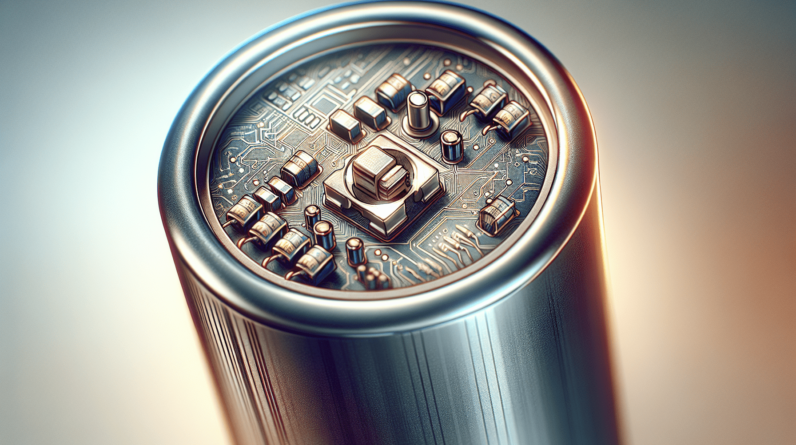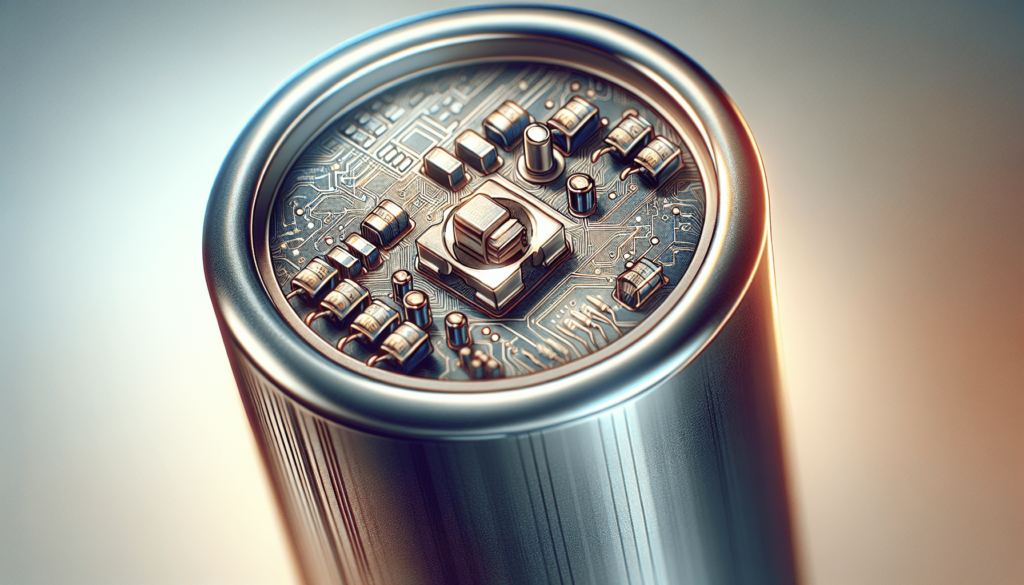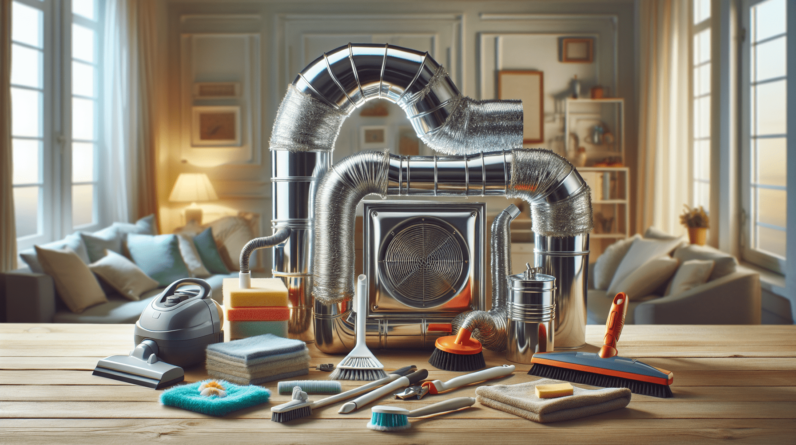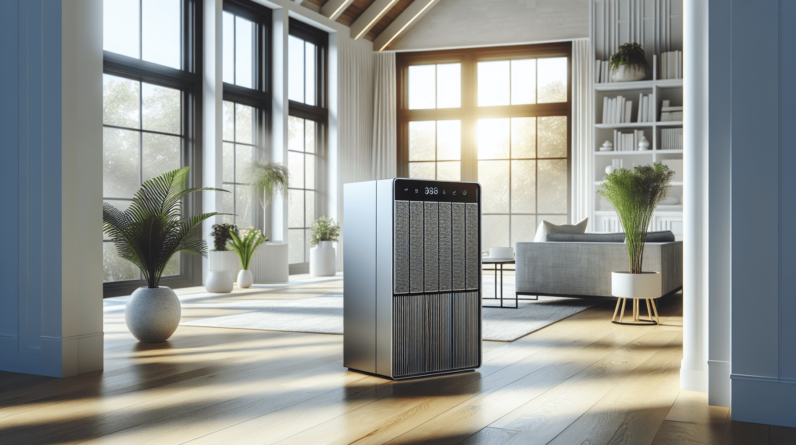

Have you ever wondered how your air conditioner keeps your home cool and comfortable, even on the hottest days? One of the key components that plays a crucial role in the functionality of an air conditioning unit is the capacitor. Understanding what a capacitor does and how it affects your air conditioner can help you appreciate your cooling system much more.

What is a Capacitor?
A capacitor is an essential electrical component that stores and releases electrical energy. In the context of air conditioning, capacitors are used to power various parts of the unit, ensuring they function effectively. Think of a capacitor like a battery for your air conditioner; it doesn’t create energy—rather, it stores and releases it when needed.
Capacitors come in various types, but in air conditioning systems, the most common types are:
- Start Capacitors: These capacitors provide the necessary burst of energy to start the compressor motor.
- Run Capacitors: Once the motor is running, the run capacitor maintains the necessary voltage, ensuring smooth and efficient operation.
Understanding the role of these components can give you insight into why your air conditioner might struggle and how to troubleshoot potential problems.
Importance of Capacitors in Air Conditioners
Capacitors are crucial for the performance of your air conditioning unit. They help in starting the compressor motors and keeping them running efficiently. If a capacitor fails, your unit may not start at all, or it may struggle to provide adequate cooling.
Here are a few reasons why capacitors are so important:
-
Starting Motor Efficiency: Without start capacitors, the compressor motor may not get the surge of energy it needs to initiate operation. This can lead to overheating and eventual failure of the motor.
-
Energy Conservation: Run capacitors help in maintaining the efficiency of the system, reducing the overall energy consumption. This not only saves you money on your energy bills but also reduces wear and tear on your unit.
-
Smooth Operation: Capacitors provide the necessary balance in voltage, preventing fluctuations that can damage other components and enhancing the overall lifespan of the system.
By understanding the importance of capacitors in your air conditioning system, you can take better care of your unit and recognize issues more readily.
How Capacitors Work in Air Conditioners
To truly appreciate how capacitors work, it helps to look at their function within the air conditioning system in more detail.
Start Capacitors
Start capacitors are designed to give an extra boost of energy to the compressor motor when it is starting up. Here’s how they function:
- Energy Storage: The start capacitor stores energy until it’s needed to give the motor an initial surge.
- Momentary Supply: Once the compressor motor reaches its operating speed, the start capacitor disconnects from the circuit, allowing the run capacitor to maintain energy supply.
This sequence is critical for ensuring that the compressor motor gets enough power to start, particularly during the demanding summer months.
Run Capacitors
Run capacitors are constantly in use while the air conditioning unit is operating. They provide a steady voltage to keep the compressor and fan motors running smoothly. Here’s a breakdown of their operation:
- Continuous Voltage Supply: Run capacitors provide the necessary voltage to the motor during operation, reducing inconsistent power supply concerns.
- Efficiency: This continuous supply helps in improving the efficiency of the air conditioning unit, leading to better cooling performance.
By maintaining stability in voltage, the run capacitor plays a vital role in ensuring that you enjoy consistent and comfortable indoor temperatures.
Signs of a Failing Capacitor
Understanding the signs of a failing capacitor can help you catch issues early before they become more serious. Here are a few indicators you might notice:
Humming Noise
If you hear a humming sound coming from your air conditioner, it could signify that the compressor is trying to start but is failing to do so due to a faulty capacitor.
Inability to Start
If your air conditioner won’t turn on at all, check to see if the capacitor is the issue. If the start capacitor is defective, it won’t provide the necessary boost to get the compressor running.
Frequent Cycling
If your air conditioning unit turns on and off frequently, this may indicate a problem with the run capacitor. An inconsistent voltage supply can cause the compressor to cycle more than it should.
Overheating Unit
An overheating air conditioning unit can be a sign that the capacitors are not functioning optimally, leading to increased strain on the compressor motor.
If you notice any of these signs, it’s best to contact a professional to check the capacitors and ultimately resolve the issues.

How to Test Capacitors
If you’re feeling adventurous, you can test the capacitors yourself to see if they are the culprits behind your air conditioning troubles. However, if you’re not comfortable working with electrical components, calling a professional is wise. Here’s how you can check the capacitors:
Safety First
Before you do anything, make sure to turn off the power to your air conditioning unit at the circuit breaker. Safety is the first step in any electrical work.
Using a Multimeter
A multimeter is a handy tool for testing capacitors. Here’s a quick guide on how to use it:
-
Discharge the Capacitor: Before testing, ensure the capacitor is discharged. You can use a resistor to safely discharge it.
-
Set the Multimeter: Switch your multimeter to the capacitance mode.
-
Connect the Leads: Attach the multimeter leads to the capacitor terminals. It doesn’t matter which lead goes where.
-
Read the Value: Compare the reading to the capacitor’s rating, usually printed on the casing. If the reading is significantly lower or higher than the rated capacitance, it may be defective.
Professional Testing
If you’re unsure of your findings or uncomfortable performing these tests, it is always a good idea to hire a professional technician who can diagnose the issue efficiently and safely.







